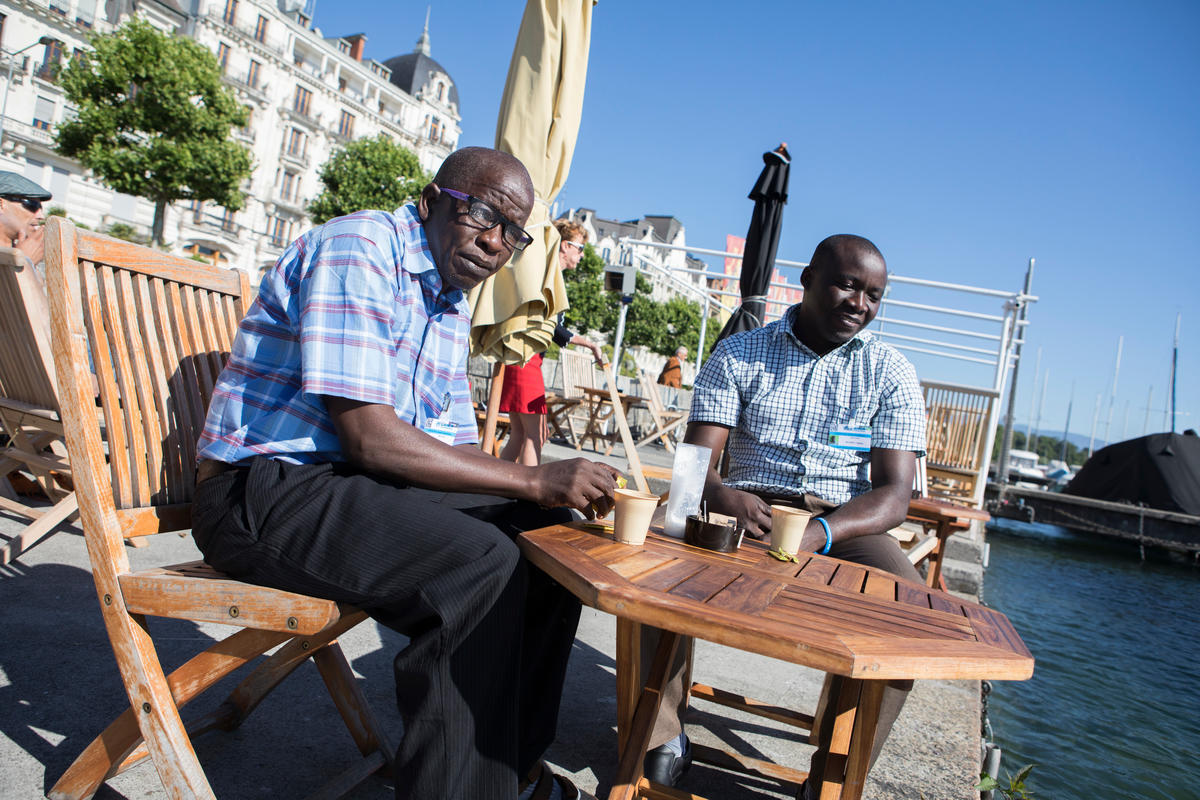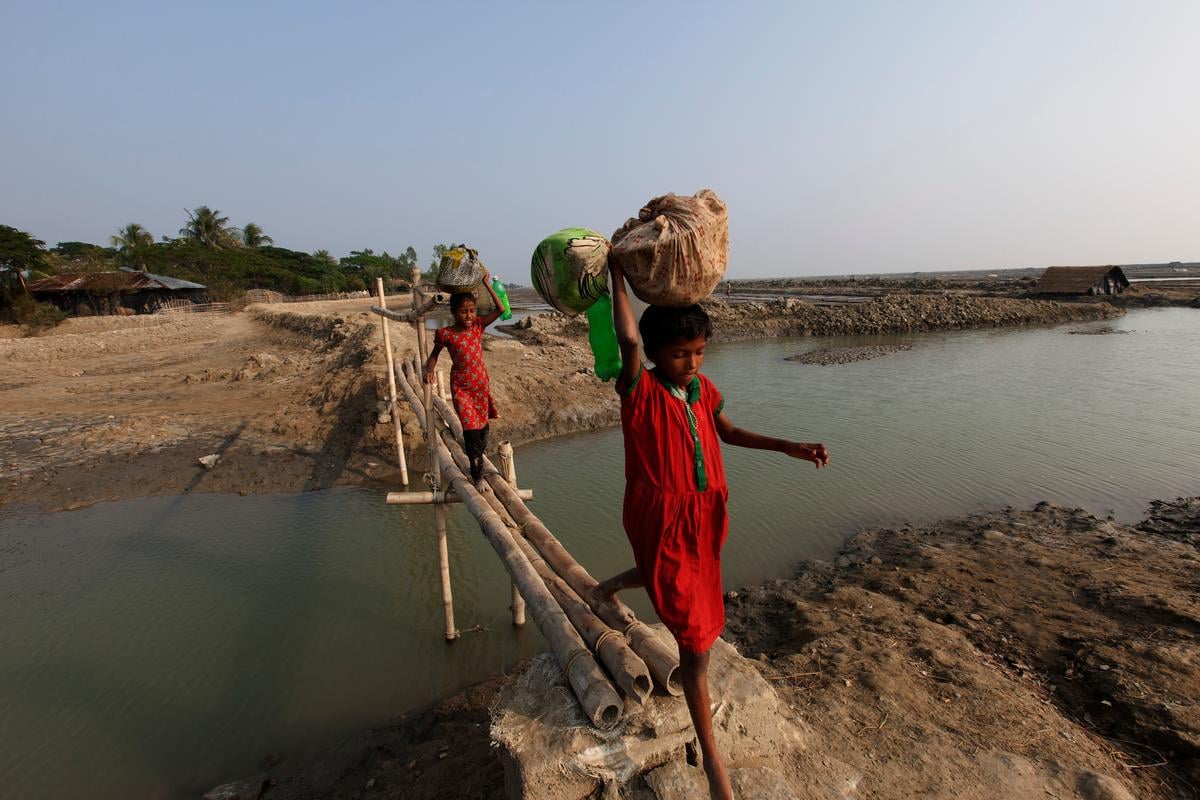Q&A: Builder from Benin volunteers to help UNHCR in Burundi
Q&A: Builder from Benin volunteers to help UNHCR in Burundi

MUYINGA, Burundi, January 9 (UNHCR) - Every year, hundreds of people from the UN Volunteers (UNV) programme are assigned to work for the UN refugee agency. Anicet Adjahossou is a typical example. He worked in the construction sector in West Africa for several years before deciding to try something completely different. Last year, the 32-year-old from Benin joined the UNV programme and was sent to work for UNHCR in Burundi, where 10 UNVs work for the agency. Adjahossou is based in the remote Muyinga sub-office, where he helps refugees from neighbouring Democratic Republic of the Congo as well as Burundian returnees from Tanzania. He recently discussed his experiences with UNHCR External Relations Officer Andreas Kirchhof. Excerpts from the interview:
Why did you become a Volunteer?
I wanted to find out more about humanitarian work. Before, I had been working for some years in the private sector, both for private customers and industry. I was mostly involved in construction, water and sanitation. I said to myself that there is also a social aspect to the work of an engineer; that engineering skills could serve people in need, such as those without decent accommodation.
I had also developed an interest during my career in using cheaper local materials for construction, including wood and mud. This is something that interested me about working with UNHCR.
Tell us about your work with UNHCR
There are two camps for Congolese refugees nearby. I coordinate all the construction projects for these two camps, including houses, classrooms, standpipes and latrines. I am also responsible for a reintegration project for Burundian returnees. We give them building materials to construct small houses. In 2008, with the help of two field assistants, I helped 5,300 vulnerable returnee families to get shelter. This means that more than 26,000 people are now living in better conditions. We also have a reforestation project to counter the effect of cutting trees to construct shelters. We have also started to build a drainage system and to sow special plants to counter soil degradation around the camps.
Is your work with UNHCR similar to your construction work in West Africa?
It is very different. Before, I was working in an office. I was more involved in conceptualizing and drawing up plans, calculating and controlling construction sites. In my previous job, the work was very much focused on the demands of one client and his comfort. Here, we need to put ourselves much more in the shoes of the people we work for. And we can make people happy with little means at our disposal.
Are you in contact with the refugees and returnees?
Yes, we spend quite some time in the field. We try to focus on the most vulnerable cases. For example, a woman who has lost her husband or an elderly person who is too weak to look after themself. We recently went to visit a returnee woman. It was raining and the water was dripping into her shelter. It was difficult for us to help her because the programme for this year had already begun and all the beneficiaries for houses had been selected, but finally we managed to get her into the programme.
How does your job fit into the overall work of UNHCR?
UNHCR is a protection agency. All the activities of UNHCR should follow that logic, and that applies even to engineering. Right from the beginning, UNHCR helps the refugees. The houses built under our programme, the latrines, this is an immediate contribution to the well-being of refugees.... The shelter programme is one of the things that reassure refugees and returnees, because it gives them security.
This town is very isolated. Is it difficult living here?
Yes, it is difficult, but I knew this when I accepted the job. In the beginning, the stress was huge and I felt lonely, but things have become easier. I had already worked in other African countries - Mali and Burkina Faso - and I knew this kind of situation.
Muyinga is quite remote, but if you want to work with passion then it is just right. It is calm, which is helpful for reflection and creativity. You don't have many constraints - and not many other things to do. It is quite a long way from the nearest big town. But I spend three days of the week on the road, meeting our partners and talking to refugees and returnees. This is quite different from being in a city and in an office. Here, you are connected with reality and have a different perspective.
What does it take to be a Volunteer?
One should have an open mind, the capacity to adapt, a bit of courage and a well-balanced character. You work with people from other cultures and you need to get along well with them. And the last characteristic, which is the most important, is professionalism.








